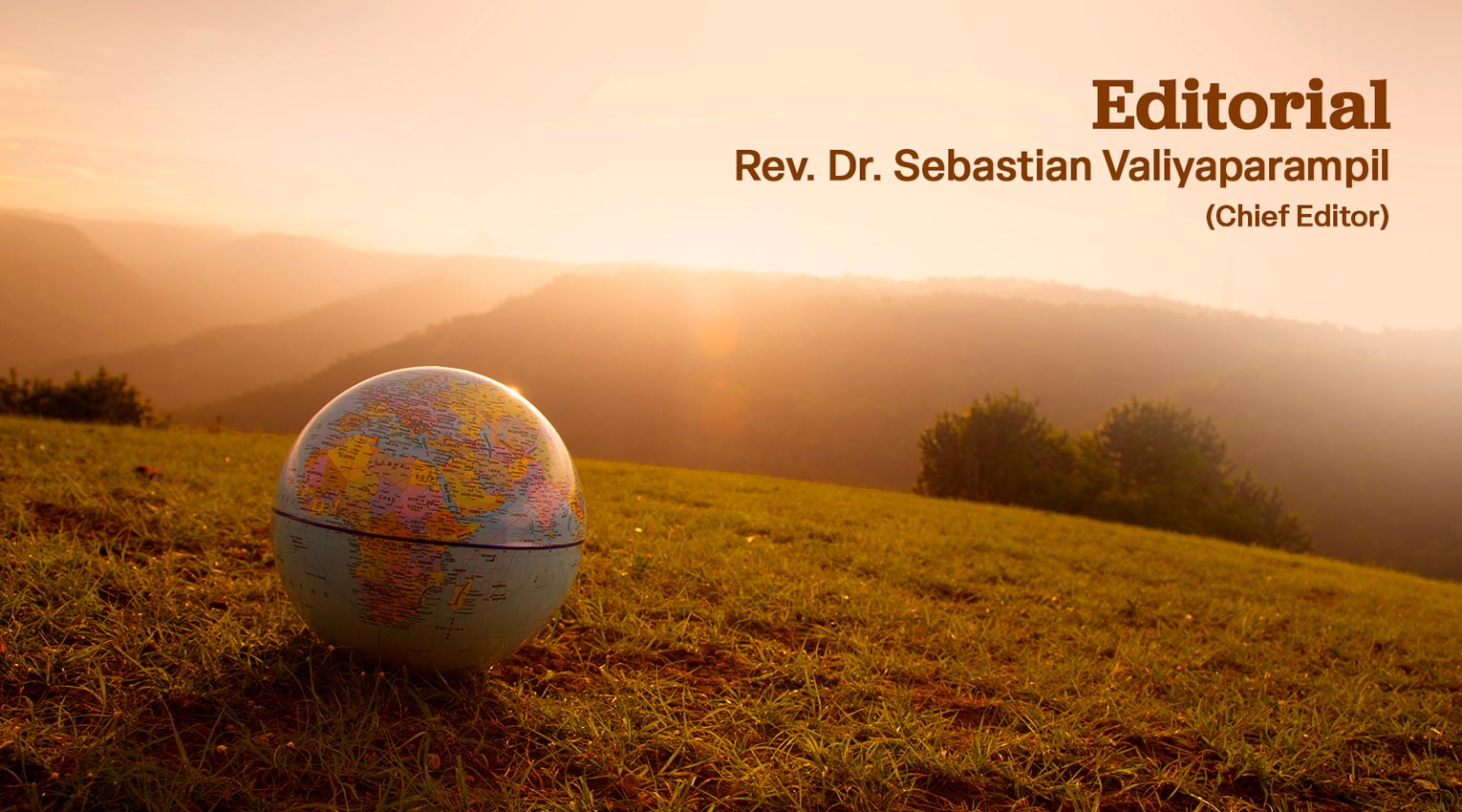From the Chief Editor’s Desk:
This year, the summer heat wave was felt by everyone in the first week of September, in Los Angeles and elsewhere. It made headlines due to the alarming fact that it was the first time the temperature rose above 100 and continued through the following couple of weeks. The news and weather channels were bombarded with fearful warnings of the effects of the heat wave. One predicted effect, wildfires, resulted in damage and casualties worldwide, sparking national and international agencies to discuss the ever-growing issue of climate change.
As the feast of St. Francis of Assisi is approaching, to be celebrated on the 4th of October, we shall remember his position as a champion of eco-theology for the modern world. It’s high time that we, as members of the church, address this vital theme, which is extensively dealt with in the Encyclical letter of Pope Francis Laudato Si (Praise be to You). This letter received much appreciation and attention around all corners of the world. It deals with climate change and the need to protect the environment for the future of humanity. Francis of Assisi is remembered always for his love of nature, and for his simplicity and humility. Even though he came from a rich and aristocratic family, he realized that material things do not last. In a world of vulnerability in every area of life, there is an urgent need for an integrated ecology that helps humankind live long joyfully.
Pope Francis, in his Encyclical Laudato Si, says that “The continued acceleration of changes affecting humanity and the planet is coupled today with a more intensified pace of life and work which might be called “rapidification”. Although change is part of the working of complex systems, the speed with which human activity has developed contrasts with the naturally slow pace of biological evolution. Moreover, the goals of this rapid and constant change are not necessarily geared to the common good or to integral and sustainable human development. Change is something desirable, yet it becomes a source of anxiety when it causes harm to the world and to the quality of life of much of humanity.” (Laudato Si no. 18) In this encyclical Pope Francis deals extensively with the factors that are critical in society today, and as members of the church, we have a duty to respond to this urgent call.
The human society and leadership roles of the countries are changing day by day. The interests of peoples are oriented in line with the government policies. The resonance of war still echoes in many parts of the world.
Francis of Assisi believed in a holistic solution for the disorders of his time. It was during his time, similar changes were at pace in Europe. In recent years, we too, are experiencing rapid changes alongside a tendency to change the natural and religious values of all times.
“But we must remember there can be no separating climate action from the larger planetary picture. Everything is interlinked – the global commons and global well-being. That means we must act more broadly and more holistically, across many fronts, to secure the health of our planet on which all life depends. Nature feeds us, clothes us, quenches our thirst, generates our oxygen, shapes our culture and our faiths and forges our very identity.” (Antonio Guterres, UN Director General) Let us remember, protecting the future is our future.
Let’s love nature which is given by God, protect it, and be a blessing for future generations.
Dr. Sebastian Valiyaparambil
Chief Editor




